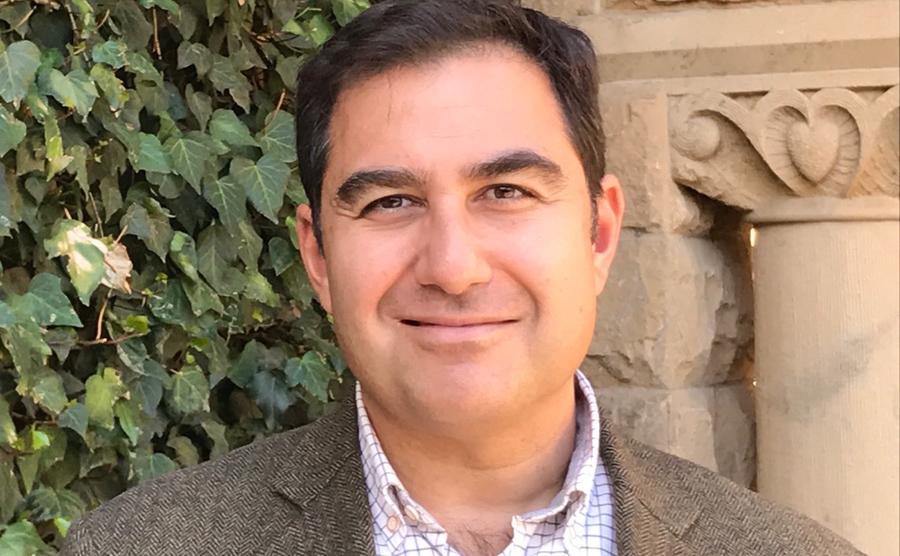Type de contenu
Professeur invitéAli Yaycioglu

Ali Yaycioglu is an assistant professor of History at Stanford University. Dr. Yaycioglu's fields of interest include the transformations and crises of the Ottoman Empire in the eighteenth and early ninteenth centuries in the broader context of transition from early-modern to modern world; restructring of economic and political institutions and ideas, and changes in social and religious life during this transformative time; Ottoman spatiality, spatial imaginations of life, nature and power, and digitial geo-spatial analysis. Her first book, The Partners of the Empire : The Crisis of the Ottoman Order in the Age of Revolutions was published in 2017, by Stanford University Press.
CONFÉRENCES
Life, Power and Empire: Ottoman Men of State and State-Society in the Eighteenth Century
Dans le cadre du séminaire de Nathalie Clayer Les sociétés sud-est européennes des XIXe-XXIe siècles au prisme des trajectoires individuelles
- Lundi 6 mars 2017, de 17h00 à 19h00 – EHESS (salle 2), 190-198 avenue de France de France, 75013 Paris
This talk is on lives of Ottoman men of state, namely individuals who became part (and partner) of the state establishment through diverse ties, arrangements, offices and contracts in the Ottoman Empire in the 18th and early 19th century. The talk examines biographies of these men and attempts to understand the operation of the Ottoman State-Society, namely complex and increasingly expanding network and assemblage of men and families, who were linked to the central state and to each other with various forms of connections, patronage and friendship, debt and credit relations.
The focus of this talk is a biography of Pehlivan Ibrahim Pasha (1760?-1820), an Ottoman vizier with an extraordinary career and life, reaching from central Anatolia to the Balkans, from Caucasus to Russia. The title of the biography is Vekayi-i Baba Pasha fi’t-tarih (The affair of Baba Pasha in History). Its author is a Naqshibandi and Halveti Shaikh, Gazzizade Abdullatif Efendi of Bursa.
Dans le cadre du séminaire de Frédéric Hitzel Arts, patrimoine et culture dans le monde turco-ottoman
- Mercredi 15 Mars 2017, de 16h00 à 18h00 – EHESS-IISMM (salle de réunion), 96 boulevard Raspail, 75006 Paris
The talk will examine the genre of life-writing in the Ottoman World in the eighteenth and the early nineteenth centuries under the light of this text and will discuss various themes and problems, such as empire and life, episodic writing, place and space, authorship and authority, friendship and patronage. It will also compare the biography with early Ottoman life-writing and life-painting of men of state. The talk will also briefly discuss how Sokullu Mehmed Pasha (the Grand Vizier of Suleiman I and Selim II) in the sixteenth century commissioned an image for his life story in chronicles through painting.
Debt and Death : Imperial Seizure after the Death under the light of the Confiscation Record of an Ottoman Grand Vizier, 1809.
Dans le cadre du séminaire de Nicolas Vatin Études ottomanes, XVe-XVIIIe siècles
- Jeudi 16 Mars 2017, de 10h00 à 12h00 – Sorbonne (salle H 646), 54 rue Saint Jacques, 75005 Paris
The talk is on a document, which was prepared after the death of Mustafa Bayraktar by fiscal experts to confiscate his property, assets, debts and credits. Mustafa Bayraktar was a grand vizier who was killed in 1808 in a Janissary revolt. After his death, a massive confiscation process took place to seize his possessions. In the seminar we will read the text together and interpret the confiscation process in the Ottoman imperial order.
Authority, Property and Community: Reflecting on Imperial Spatiality
Dans le cadre du séminaire de Marc Aymes Séminaire d’itinéraires et de débats en études turques, ottomanes, balkaniques et centrasiatiques
- Mercredi 29 Mars 2017, de 10h00 à 13h00 – EHESS (salle 2), 190-198 avenue de France de France, 75013 Paris
The talk is an attempt to rethink the Ottoman imperial space and its relations with places, communities, and people of power. It partcularly examines how « authority » became a form of property which was granted for short or life-term periods in the Ottoman regime. The talk focuses on the 18th century.